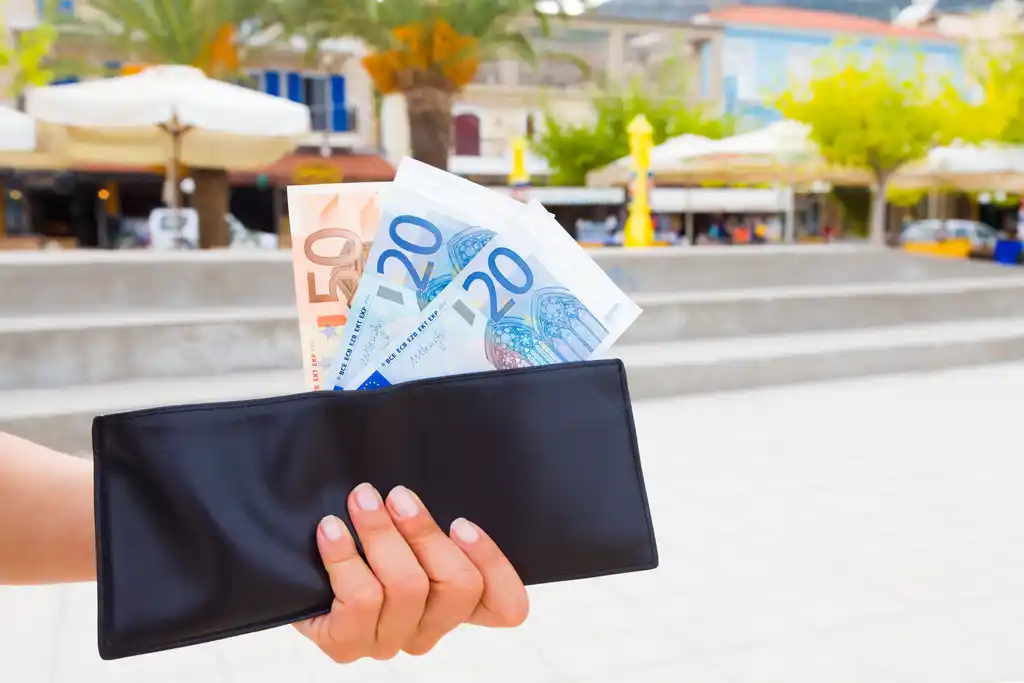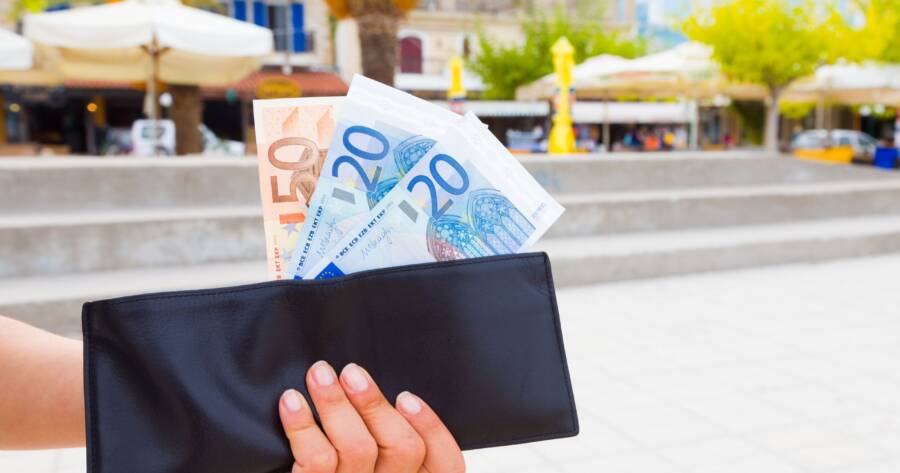For many of us, travel is one of the most enjoyable and rewarding experiences in our lives. Unfortunately, unless you’re taking a staycation, it also tends to cost a lot of money. Between accommodations, airfare, meals, and other expenses, it’s no surprise that the average American spends $1,979 on summer vacations alone. Finding the right balance between treating yourself and being frugal can be a challenge, especially when you’d rather enjoy yourself than worry about money. However, like other financial considerations in your life, it pays to travel with a cost-cutting mentality.
Since most of the vacation budgeting literature out there focuses on pre-travel money saving tips, we’ve put together a list of ways to save money after you’ve arrived at your destination. From where to eat to how to find free activities, here are ten ways to save money while on vacation.
Have a Budget and Stick to it
A surefire way to go over budget on vacation is to not set one in the first place. WealthVersed has published multiple articles stressing the importance of budgeting for your everyday life. That same philosophy applies to vacationing too. One useful strategy is to sort your expenses into categories. DoughRoller recommends putting a third of your budget to airfare/travel, another third to accommodations, and the remainder split between food, activities, and miscellaneous purchases.
You should also have a maximum budget in place from the start. Unfortunately, this number can be difficult to come up with. It will depend entirely on your own financial situation. Whatever you do, make sure it’s a figure you can actually afford. Going into debt over a vacation is a good way to guarantee you’ll be waiting a lot longer to take your next trip!
Stay at a Place With Laundry Services
If you’re going to be traveling for longer than a week, you’re going to need to wash your clothes at some point. Even if your stay is short, booking a hotel or Airbnb with laundry facilities can help you cut down on luggage and save some money at the same time. When you hit a point in your trip when all of your clothes are dirty, it can be tempting to just buy new stuff. It’s much easier than going through the hassle of finding a washer and dryer.
Although it may cost a bit more to secure a place with laundry, you’ll generally end up saving more money overall. For one thing, you won’t need to buy additional clothes while on vacation (unless that’s part of your plan, of course). Clothes also take up a lot of space in your luggage. By packing light and washing your outfits, you may be able to avoid bringing a checked bag altogether. At the very least, you won’t have to pay fees for overweight bags.
Don’t Get Breakfast at the Hotel
Unless you’re staying at a Bed and Breakfast or a hotel that serves continental, you should look elsewhere for your morning meal. Hotel breakfasts tend to be overpriced. If we’re being honest, they’re not even that good. You’re much more likely to find a cheaper, better breakfast at a local cafe.
Have a look in the area you’re staying and see which places are getting good reviews. You just might find your favorite meal of the trip. You’ll rave about that local gem to friends and family when you get back. As an added bonus, maybe you’ll get to practice ordering your meal in a different language. When in Rome!
When in Doubt, Take the Slower Transportation
Taking a taxi is often the easiest way to get around a new city. They will get you from point A to B without you really having to think about it. But where’s the fun in that? Unless it’s a rural area, odds are the city you’re traveling in has decent public transportation. Even there isn’t a subway system, there’s probably a good ol’ fashion bus route. Sure, it may take a little longer, but public transit options are going to save you a lot of money compared to taking taxis or Ubers everywhere.
If you’re going to be traveling a longer distance, consider taking a bus as opposed to a plane or train. While regions like Europe have affordable and efficient train systems, taking the bus is still cheaper (even if it takes a lot longer). In general, the slower the transportation, the cheaper it will be. Keep that in mind if you can afford a little extra travel time.
Find the Best Exchange Rates
One of the challenges of budgeting for a trip in a foreign country is that you need to take currency exchange rates into account. Your buying power can fluctuate considerably depending on where you go. It pays to get the best exchange rate possible. Unfortunately, this requires some research and legwork on your part.
Generally, you’ll probably get the best rates at your bank. Conversely, foreign exchange centers (the ones you’ll find at the airport) typically offer some of the worst. You should also check with your credit card provider to see what rates they offer too. Depending on who you’re with, you could get better rates than you’ll find at your bank. Or worse rates than the foreign exchange centers.
Buy Groceries and Make Your Own Meals When Possible
Food is one of the biggest vacation expenses you’ll incur. With that in mind, you should look to save money on meals whenever possible. In addition to looking for cheap local cuisine, you may want to consider preparing your own food.
It doesn’t need to be anything fancy, mind you. Grab some ingredients to make sandwiches and bring those with you for lunch. Not only will this save you money on eating out, but eating on-the-go will give you more time to get out and explore. If you’re feeling adventurous, consider renting a hotel or Airbnb with a kitchen so you can cook meals and hold onto perishables. The best food tends to be at the local markets anyway, so get out there and try something new!
Look For Free Stuff To Do
Unless you’re vacationing on someone else’s dime, major travel costs such as airfare and accommodations are pretty much unavoidable. Fortunately, once you arrive at your destination and get settled in, you have a lot more control over your expenses. YOU get to choose the activities when you travel. So if saving money is a top priority, free activities are hard to beat.
Cities like Washington, D.C. offer free admission to museums, while others will often have various ways to get steep discounts. Free walking tours are another great option, as they get you acquainted with a city in an active way (feel free to skip the tour and make some discoveries on your own, though). When in doubt, type “Free events this week in [name of city]” into Google and see what catches your eye. There’s probably something fun to do on the cheap.
Avoid Tourist Traps
“Live like a local” is a useful mindset to adopt while you’re away. After all, the best way to experience a place is to immerse yourself in the local culture. That involves avoiding obvious tourist traps. While there are always going to be some “touristy” things worth experiencing, these attractions are often crowded and overpriced. Fortunately, it’s easier than ever to go off the beaten path thanks to various online resources. Here are a few we recommend checking out.
- Traveling Spoon – Like Airbnb but for food. Book private meals or cooking classes with 100% vetted hosts.
- Meetup – This community app is also great for travel, as it connects you with all sorts of local groups.
- All Events – Like its name suggests, this service lets you easily search all upcoming events in a particular city.
Don’t Buy Souvenirs
Speaking of tourist traps…
Gift shops are pretty unavoidable in most vacation destinations. It’s easy to fall victim to their allure. After all, we’ve all kind of had it instilled in us that we have to buy people souvenirs while you’re away. But ask yourself, does your mom really need that overpriced “I <3 NY” T-Shirt? Even if you find a good deal on these sort of knickknacks, their quality is usually too poor to justify the cost.
Just as you should avoid buying stuff you don’t need at home, don’t do it while you’re on vacation either. You’re better off putting that money towards making some memories. However, if you can’t resist the souvenirs, try and buy something from a local shop. It’ll be a lot more meaningful and you’ll be supporting a local business too.
Stay Vigilant
Okay, time to dip into some personal security talk for a minute. The fact of the matter is all of the budgeting in the world will mean very little if you end up being a victim of theft while you’re away. Pickpockets prey on tourists, so it’s important to keep your belongings secure at all times in crowded areas. And not just physically. Gone are the days of just having to worry about your wallet being stolen. Tech-savvy thieves can scan your chip-enabled (EMV) debit and credit cards to steal your payment credentials without you even knowing it.
The best defense is to invest in an RFID-blocking wallet or sleeve, which interfere with these signals. While there is quite a bit of debate over whether these wallets are even necessary, it doesn’t hurt to have one. Many wallet manufacturers are starting to put RFID-blockers in their products anyway, so there’s a good chance you already have one if you’ve purchased a new wallet recently.
However, keep in mind that not every product that claim to block RFID signals actually does. If possible, test it out first. One way to do this is to put a keycard in your wallet and try scanning it on a door lock. If it works, you’ll know that the RFID blocker doesn’t work.
 Shutterstock
Shutterstock







